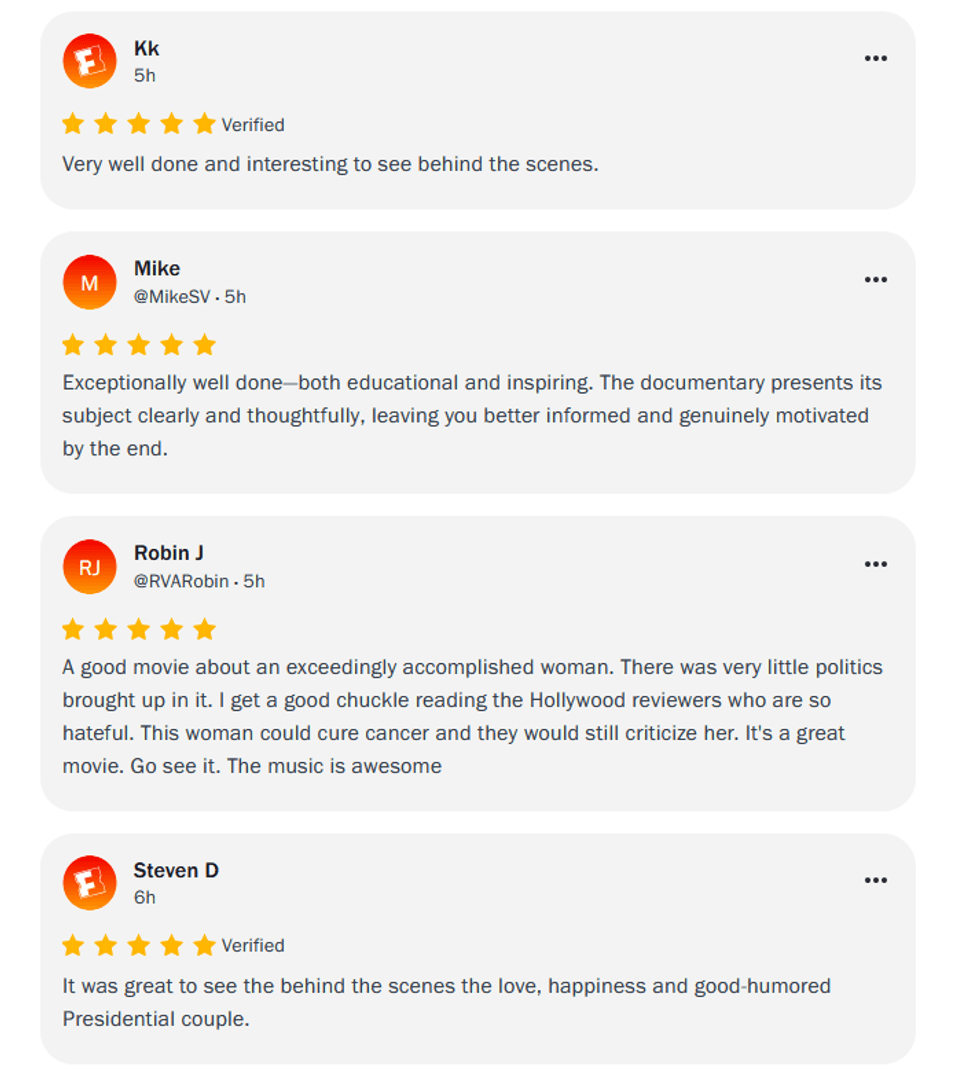It's scary to have a medical issue.... any medical issue. But we can't be afraid to be honest. In order for our healthcare providers to truly help us we have to be upfront. We can't hide small facts because the devil is in the details. Getting better and staying healthier requires some cold, hard truths.
So the doctors start discussing some fibbing on Quora by asking...
As a doctor, what is the most dangerous lie a patient has told you?
It starts at the Shoulder....
 Giphy
GiphyThe guy had a dislocated shoulder. You could plainly see it on the X-ray and you could easily tell by examination. According to the chart, this was the second time he had been in the ER that week for the same complaint. That is not all that unusual because once a shoulder is dislocated, it can become pretty unstable which causes it to dislocate again with very little trauma. The story was a little strange though. He told us that it happened again because he took off his sling in order to pour a bowl of cereal. The motion of tipping over a half gallon of milk to fill his bowl caused the dislocation today. He seemed to be in excruciating pain.
There was nothing to do but reduce the dislocation. There are a number of ways to do this but all of the most effective ones require sedation and with the amount of pain he seemed to be having there was really no other option. He was connected to the monitors and a nurse came in to help monitor him. I also had a tech in the room and a medical student to teach and also help with the procedure in the event it became physically difficult to perform. It took a lot of pain medicine to sedate him to the right level. In fact, almost twice as much as I expected. Even after that much medicine every time we started to pull on his arm he would cry out in pain. So, he got more medicine. After he was appropriately sedated, his shoulder was extremely easy to reduce. We wrapped him up in a sling and got a post-reduction X-ray to make sure everything was back to normal, and he was placed in his treatment room until we could arrange a follow-up with an orthopedic surgeon.
I went back in the room to talk to him about his follow-up and the need to see a surgeon to be evaluated and he was screaming in pain. He told me his shoulder just dislocated on its own right before I walked in. Another X-ray and sure enough, it was dislocated again. We go through the whole process again and he is discharged this time. However, he ends up coming right back in to the ER because he said his shoulder dislocated while trying to get into his car. So, he gets placed back in a room and we prepare to do it all over again.
At this point, one of the ER techs comes up to me and tells me sheepishly that she was outside hiding to have a smoke break when she sees our patient come out and have a cigarette nearby. She watches him as he pulls his arm out of socket then continues to watch him as he walks back into the ER. I confronted the patient and he initially denied it but ultimately admitted that he could dislocate his own shoulder. He had kept doing it that day because he wanted long-acting sedating medications not the Propofol we had been giving him.
This was incredibly dangerous. As my anesthesia colleagues will tell you, conscious sedation in the ER is not an ideal environment. It is fraught with hazards including aspiration, circulatory collapse and airway occlusion. Pretty much any lie a patient tells their doctor places them at risk but this sort of lie is Russian roulette. Robert F
My Due Date.
"My due date was a week ago."
I had a patient come in to labor and delivery. She reported that she had received prenatal care in another state, and so she was assigned to me since I was taking unassigned call that day.
She said she wasn't feeling the baby move, and that her due date was a week ago. She was very insistent that she needed an induction of labor.
I performed an ultrasound which showed a baby that was moving, but was measuring extremely small for a full-term baby.
This could represent fetal growth restriction and poor oxygenation in a full-term baby. Growth restriction at term would be an indication to go ahead and deliver.
But her story was confusing. She couldn't give us a clear answer of exactly where she was getting prenatal care, which was a problem because we wanted to obtain and review her records.
Ultimately we took a guess and called the nearby large tertiary hospital to see if she had ever been seen there. She had been. In fact she had been coming in every day complaining of contractions or bleeding or decreased fetal movement (there was never any evidence for this). She had been requesting for weeks to have a baby because she was tired of being pregnant.
She was barely 32 weeks.
Each time she had requested delivery, someone had explained the importance of not having a premature baby if possible and all of the medical risks that it would entail for the baby.
So she decided she would try her luck at another hospital and tell them she was full-term.
She was indignant and irate when confronted.
If she had managed to convince us, her baby would likely have spent a month or more in the hospital, receiving multiple blood draws and IVs and oxygen, risking multiple chronic medical conditions for the duration of the child's life, and could have even died. And this hospital stay would have been to the tune of multiple hundreds of thousands of dollars.
I'd say that was a pretty dangerous lie. Lacy W
Oh Boris.
 Giphy
GiphyReading Robert Frantz story reminded me of a similar incidence.
I was on call for Orthopedic and Trauma on a Friday night in a seaside town north of England.
The Accident and Emergency guy pages me.
He says, "Listen Boris, I have this guy with achondroplastic dwarfism (what Tyrion Lannister has in Game of Thrones). He has an anterior shoulder dislocation that does not want to stay in place, no matter how many times I pop it in."
So I go down to the Accident department. See this guy lying there puffing on Entonox (nitrous oxide, aka laughing gas, plus oxygen).
He did not seem to be in pain and was puffing the gas as if it was a Shisha. Nitrous oxide reduces pain but does not stop it.
Well I gave the shoulder a pull into place. Kept him in a special sling and was standing with the A&E doctor chatting. From the corner of my eye, I notice the patient loosening the straps of the sling and effortlessly popped his shoulder out again. Fastened back the straps and shouted from pain.
I walked up to him and took away the gas mask. He looks at me, takes off the shoulder brace. Clicks his shoulder back in and walks out without a word.
A couple of weeks later, the A&E doctor was locuming (moonlighting) at a hospital in Manchester. He walks into a treatment area and sees the same guy there again, puffing gas, with another A&E doctor scratching his head. He walks over to say hi - and the patient leaves.
In this case it was a time and cost waster (free healthcare in the UK). Not really dangerous as even if the patient is hooked on nitrous oxide they cannot overdose on it in hospital.
The dangerous one I remember was a guy, with back pain, that faked cauda equina symptoms. This is an emergency when the spinal discs pop out, crashing nerves in the spine. If the pressure is not removed, the symptoms become permanent (e.g. like a leaking bladder or leaky anus).
He went to his General Practitioner with his lower back pain asking to be referred to hospital. The GP refused. He told him that Orthopedics will only see him if he has possible cauda equina. So what does he do? Checks up the symptoms and goes to A&E.
Naturally Orthopaedics is called in and we requested an urgent MRI. We do get false positives which the MRI clears up. Unfortunately for him, the report was inconclusive. However, he has the symptoms and so we start getting him ready for surgery.
We explained everything to him. He looked blankly at us and refused to sign the consent. We left him to think about it. Ten minutes later, the nurses called to tell us that he just walked out saying he was fine.
Imagine how much money he wasted. Sometimes I feel a bill needs to be sent out from the government to people like that. Boris E
The Wrong Pipe.
I'm a dentist anesthesiologist. I provide general anesthesia for dentists at the hospital I work at and in private dental offices. Some patients think since "it's just dentistry/teeth" that means the anesthesia is somehow "different." So, sometimes patients lie about the last time they ate or drank something. This dramatically increases the risk of gastric contents entering the lungs i.e. aspiration.
To undergo general anesthesia for dentistry requires the same loss of reflexes and muscle control as the depth of anesthesia necessary to facilitate tonsillectomy or appendectomy.
General anesthesia results in obtunding the airway reflexes so if something were to "go down the wrong pipe" instead of coughing wildly a patient would have the contents pour into the larynx, trachea, and lungs without the vocal cords protectively shutting. General anesthesia also lowers muscle tone. One such weakened muscle is the cardiac sphincter between the esophagus and stomach. A relaxed cardiac sphincter allows gastric contents up the esophagus where they may pour into the lungs. So, general anesthesia lowers your defenses at the stomach level and the larynx level. This increases the risk of aspiration, which may be deadly.
A full stomach changes a low risk, straightforward induction (the process of putting someone to sleep) into a special high risk, emergency induction. There is a special method of induction called rapid sequence induction (RSI) for emergency patients that must be put to sleep even though they have food in their stomach. RSI lowers the risk of aspiration, but if a patient lies about having eaten, it is the worst of all worlds: they are at high risk and I'm not delaying the case and I'm making things worse by performing a routine induction instead of RSI.
I've had patients I've anesthetized more than once violate their NPO guidelines (when you can have nothing by mouth) the second time. I've had a parent feed the second or third sibling who requires general anesthesia after the other siblings had anesthesia without issue. I think it's because they figured since it went so well the first time, then "going to sleep" must not be a big deal.
I keep the suction on and close for every induction, and run drills with all staff to turn right and tilt down/trendelenburg. I get the patients deep and intubate asap, but I always worry they aren't taking their anesthesia "seriously."
To be fair, this happened sometimes in my dental anesthesia residency, and the patients would be coming in for hysterectomies, thoracotomies, gastric bypass, etc. It's just part of the work, but I can't think of a more impactful lie with such catastrophic and acute consequences. John H
Don't Be Difficult!
As a psychiatric social worker in an emergency room I am used to patients lying. Most lies have to do with sex and drugs but often patients lie about taking their medications as directed or exercising and modifying their lifestyle to prevent or accommodate a diagnosis. Many patients even with the advent of Obamacare still use the ER as their primary care physician. Maybe for convenience. Maybe because most likely they will see a different doctor on each visit and are easier able to manipulate for drugs and or some other secondary gain.
In my ER we had a "difficult patient" list and the social worker and physicians made a case plan and put that in the patient's chart. That way all the physicians were on the same page and we were "protected" from patients who were not sincere in their presentation. That allowed us to make an appropriate referral for follow-up. Of course we were not so deluded to think that would always change a patient's behavior. Most often we suspected it just changed the patient's geography. They would stop coming to an ER with a plan and go to one that was easier to manipulate.
Patents will lie to get admitted because it is raining or they are out of alcohol/drug money or they are homeless or they are mad at their spouse.
That's why a smart hospital has a social worker available to help with assessments that are not purely medical but still take up a lot of time and energy and expensive and unnecessary treatments. The ER is one of the most expensive ways to care for patients. It is also one of the most misused areas of medicine. Any ER doc will tell you that. Robert L
High Risk.
 Giphy
GiphyI once had a patient who wanted to get out of my High Risk Ob clinic. She had been sent because she had been sensitized to the Rh factor. She was quite past any preventative value RHIG. Her level of sensitization was quite low
She stated that the father of the baby was known to be Rh negative, and that really did mean that she wouldn't need special care. I asked her if she slept with anybody else in February.
She had had sex very causally with some other guy at the very end of the month. But based on an appropriate very early scan she got pregnant in the last week of January. Now this was important. By all indications she had gotten pregnant by her Rh negative boy friend, and therefore the fetus had to Rh negative also.
She really didn't belong in a high risk clinic. We transferred her to the regular Ob clinic, with a an instruction to obtain tests for the degree of sensitization monthly.
The degree of sensitization never varied and she delivered a full term baby on the date predicted by the ultrasound. Good thing that she got pregnant by the Rh negative guy.
Got back the the blood type of baby, and she really really had been very lucky. The Rh positive baby had not kicked off all the possible problems. While trying to make certain that she got pregnant by her boyfriend she had lied about her sexual "calendar." Glenn H
It's Just Advil.
What medicines they are on, illicit drugs they are on, and the God Damn herbal supplements. Saying "Oh I took some Advil." Meanwhile they fail to say they took 24 Advil in 3 days. Saying they haven't taken any ASA or blood thinners and they have.
Saying they have quit smoking and they haven't.
Saying they haven't eaten then we prep for surgery and they confess LAST minute they have eaten
Also not including plastic surgery as part of their history. Elective surgery is STILL surgery. Also many older people are poor historians when asked about past medical and surgical procedures. Also their medication list I don't care if the pill was blue or red or pink- I need to know what it is.
For my Dad I laminated his medication card I listed the medicine, dose, route the DR who prescribed it etc…
If you want a LAUGH my Dad is the WORST at describing things, but the poor guy Wasn't born in the States. When asked for what test he went for he told me
They got me naked, put cold jelly on my back, hit me with a stick and then the DR came in an stuck his finger in my butt! I was cracking up. He actually had a Kidney ultrasound with a prostate exam LOL Poor Dad! Denise Veronica L
Mommy gave me the Chips!
Many years ago, I had a young boy patient coming for minor surgery. He was maybe four or five years old. The case was scheduled in the early afternoon. I confirmed with the mother that the child hadn't eaten anything since the night before, and then started wheeling him into the operating room. As we were on the way over, the boy tells me "Mommy gave me chips!"
I turned around and confronted the mother. She asked me if it was dangerous for the kid if he had eaten. I explained that when I put someone under anesthesia, the valves that keep food down in our stomach relax. If there's any food in the stomach, then that food plus stomach acid can end up in the patient's lungs, which can be extremely dangerous. She admitted to me that she had fed her son chips not too long ago.
She wasn't a bad mom. I place most of the blame on the surgeon, who put the mom in that situation. We usually try to schedule kids as the first case in the morning, because it's harder for them to go without eating.
I'm just so thankful that the kid blurted that out about the chips. I shudder to think what I might have done to him if he hadn't spoken up. Pooya J
Out of Stock.
 Giphy
GiphyFor the MDs on the page… a patient story which might interest you…
Reading about the drug-seeking lies told to MDs on this page makes me realize why I have so often been treated with a hint of suspicion when telling doctors that I have ADHD (I do.)
However, even if I am slightly pained to be treated suspiciously by the occasional doctor or nurse, it is worse at pharmacies when traveling. One of my ADHD impulsive behaviors is going on spontaneous trips (I'm working on it, I promise), on occasion forgetting things including my stimulant meds (or enough stimulant meds). I have had pharmacies refuse to talk to me, lie about whether or not they can transfer my prescription (in-state), tell me they are "out of stock" (after someone on the phone told me they were not) and even flat-out accuse me of seeking drugs. The result: On one occasion, I needed the meds so much (to drive safely) that I ended up doing exactly what drug-seekers do: go from pharmacy to pharmacy around town. It made me feel so "dirty."
I try to understand their cause for caution, but it is frustrating that with so little information about me, they are turning me away with no rational basis for doing so - only guesswork based on bias, stereotype, or even misreading my ADHD symptoms as the physical or verbal behaviors of an addict. (jitteriness, pressured speech, visible distractedness.)
It is really quite a ridiculous situation. But I understand that addictions make people behave in ways they otherwise wouldn't. (How could I not empathize with that when ADHD sometimes pushes me to do things constantly I know I shouldn't?). Timothy W
Addiction.
I work in the addiction field, so while I always hope that the story I'm hearing is truthful, I am required to assume that it may NOT be. For example…
A patient may come to my practice and claim that no doctor is prescribing any other medications. That could cause me to prescribe the same thing and double the dose, or to prescribe something that interacts with the undisclosed medication. I can now check an online database to see other prescribers, but I have no way of knowing whether the person is taking the medication appropriately, or whether the person is using street drugs that are dangerous in combination with whatever I prescribe.
Patients sometimes seek out medications for inappropriate reasons, especially opioid pain relievers, benzodiazepines like Xanax or Klonopin, and stimulants like Adderall. It is very difficult to know whether a person actually has ADD or ODD or pain, or whether the person is exaggerating their symptoms to get the drugs. A person who lies in this context isn't necessarily in immediate danger, but IS at danger for developing severe addictions to those substances. And I'm sure many patients die from combinations of inappropriately - prescribed medications, particularly combinations of pain pills and benzodiazepines. Jeffrey J
I am Fine.
There are many answers here covering the gamut of misinformation to providers that are dangerous (I didn't read them all).
Another side of misinformation, especially in the older population, is that "I am fine." Underreporting of symptoms because they do not want to be a bother, or are scared of what it may mean if they tell the whole truth. Many have been living with symptoms for so long that they really do not really have a good reference. Or they think it is natural to have a pain or problem because they are older.
Many times, especially with established patients, I have been on the phone or seeing them in the office, and at first everything seems fine, no problem. Then with questioning a major problem is uncovered that they felt was ok or normal, or they were just going to wait to tell me at the next scheduled appointment.
Anyone that has been in practice for a length of time knows that psychology is a major part of what is learned when dealing with people in terms of health and quality of life. We know our speciality. Knowing what needs to be done and how to do it is often the easy part. Understanding the psychology of the patient and how they see and interact with the world can be far more difficult. Gregg E
Lay off the Coke...
 Giphy
GiphyPeople don't use cocaine as much as they did twenty or twenty five years ago, but those who do often show up in the ER with a fast heart rate, high blood pressure, and perhaps chest pain. They also seem to be unable to tell the difference between doctors and policemen, else they wouldn't feel the compunction to deny cocaine use.
Now, if you have a fast heart rate and an elevated blood pressure,especially if accompanied by chest discomfort, it's very tempting to administer beta-adrenergic blocking drugs…. unless you've been using cocaine, in which case the combination is likely to kill you.
And yet even when that's all explained, people will still deny the drug use, and refuse to give a specimen for a urine drug screen. They risk death in order to try to avoid the consequence, which would be my suggestion that they not do it again. Wilk D
The Fosters.
Not a Doc. I was the lying patient. I was 15 and freshly entered the foster care system. Mt intake exam asked about suicidal thoughts or plans (I started to deliberately harm myself shortly before my 5th birthday; it distracted me a little from both the physical pain I was constantly provided with by my family.
At that intake I lied and said the self harm was not a temptation any more and I definitely was not suicidal. My foster parents very literally saved my life and taught me what I would need to know once I decided it was time to leave the nest (which didn't happen until I was 21).
Truth is I had been slowly stockpiling meds for months, and planned to use rubbing alcohol as a chaser. I eventually told my foster dad and gave him my stash.
Had the doctors believed my lie about being suicidal and about feeling safe at home I doubt I would have survived to be my 16th birthday. So docs and nurses, in a way I owe you my life because you recognized my lies for what they were.Jennifer
Bleeding Out.
I'm not a doctor, but have worked with them most of my adult life.
One of the surgeons told me about his patient.
Before surgery, he asks about any medication and/or vitamins/supplements taken. None were indicated by the patient.
The surgeon goes in and performs surgery, the patient starts to bleed out. The nurse goes out and asks the mom again about medication and/or vitamins/supplements taken… nothing.
The patient was still bleeding out, the surgeon then goes out (leaving another surgeon in charge) and asks what the patient has been taking.
The mother then states she has been taking a supplement for weight loss, but was too embarrassed to tell the doctor.
This supplement almost caused the patient to lose her life because the physician didn't know how to counteract it. Had she have told her doctor what she had been taking this would have never had happened. Marie M
How Many Sips?
 Giphy
GiphyI can't say that a patient has ever told me a dangerous idea although I am sure there is a risk that it always could be. The most common lie is an alcoholic that denies drinking. It's a real issue to deal with they start into the DT's. They can display all kind of both physical and psychological symptoms. Perhaps the worst one is when they start getting paranoid and delusional. This can become dangerous if they become disoriented and don't remember where they are. It can easily progress into violent behavior. I would probably say that the biggest physical risk, not the common withdrawal symptoms, is to have a seizure and either hurt yourself or worse. Seizures that can't be controlled can lead to brain damage. Julia Watros H
The Affairs.
My practice has been confined to out patient types of cases where lies do not result in danger to anyone!
Searching my memory room upstairs to find a suitable answer nearest to your question reminds me of a gentleman who was having a persistent urinary tract infection and despite my several interrogations denied having extra-marital sex. After his urine flow started to trickle instead of a flow, he sheepishly admitted to having an affair. He had contracted gonorrhoea. In addition to drugs he had to be referred to an urologist to get his urethral stricture dilated.
So, Dan Guerra, this is the MOST DANGEROUS lie that a patient has told me:)
Regards
D. Somanna Somanna G
Double Issues.
I saw one young woman who assured me her abdominal pain could not be anything to do with pregnancy. I explained how important this question was and asked again. She had never had sex at all she told me. She could not be pregnant. I was still suspicious so we checked for an ectopic pregnancy and pelvic infections.
I might have believed her but then she could have died from her ectopic and even if she survived been infertile from the Pelvic Inflammatory disease. She had both problems!
There are a number of rude adages about assuming every young woman is pregnant until proved otherwise but this dangerous situation is the reason for doctors cynicism about patients statements when dealing with a abdo pains.Stephen N
Rodents Menu.
 Giphy
GiphyWell this happened last year. I was posted in medicine department. A patient was admitted for consuming rodent poison. Once he was stabilized, we decided to do a mental status assessment so we can further refer him for counseling to psychiatry because it was a case attempted suicide according to us.
But that person kept on insisting that he drank the poison mistakenly considering it to be water because it was too dark at night. Days went by but he just won't admit. There's a huge risk of further suicide attempts in case of such failed ones. Talking about it and what led to such decision helps that person come to peace with their problem but here he just won't budge. Apoorva S
Hey Suzi....
I'm not a doctor but worked for them for many years. We had a woman patient who had cancer, was on oxygen, drank heavily and. . . smoked.
She shared with us that she used her oxygen and smoked at her apartment. She, as most who drink a lot, minimized her alcohol use. She was placed on hospice, meaning it was anticipated she would pass away in 6 months (of course people do live beyond that time in many cases). I got a phone call from her several years later, swearing and abusive as she always was, and said yes it is me, Suzi. I'm still here! I almost fell off of my chair! Suzi S
Tooth Box.
I am a dental assistant but still want to answer. Years ago the dentist I work for removed a tooth from a child. We gave the mom the tooth in a cute tooth box. When she got to the front desk she refused to pay saying the dentist never took the tooth out. Turned out she stuck the tooth back in the socket so she wouldn't have to pay her $5 co-pay. That kid was sick for weeks after. Nancy S
Any other doctors have a yarn to spin?














 @obamaatredrobin/X
@obamaatredrobin/X
 @realDonaldTrump/Truth Social
@realDonaldTrump/Truth Social

 @.a.zan/TikTok
@.a.zan/TikTok @.a.zan/TikTok
@.a.zan/TikTok @.a.zan/TikTok
@.a.zan/TikTok @.a.zan/TikTok
@.a.zan/TikTok @.a.zan/TikTok
@.a.zan/TikTok @.a.zan/TikTok
@.a.zan/TikTok @.a.zan/TikTok
@.a.zan/TikTok @.a.zan/TikTok
@.a.zan/TikTok @.a.zan/TikTok
@.a.zan/TikTok @.a.zan/TikTok
@.a.zan/TikTok @.a.zan/TikTok
@.a.zan/TikTok @.a.zan/TikTok
@.a.zan/TikTok @.a.zan/TikTok
@.a.zan/TikTok @.a.zan/TikTok
@.a.zan/TikTok @.a.zan/TikTok
@.a.zan/TikTok